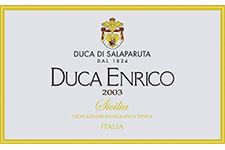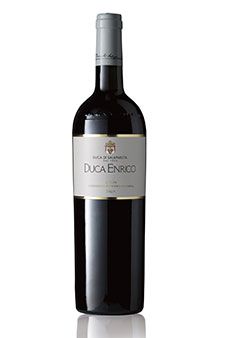
Biography

Giuseppe Alliata was prince of Villafranca and Duke of Salaparuta, but he was a man of progressive ideas. It was in 1824 that he decided to ferment the Inzolia grapes of his estate in the Corvo zone of Casteldaccia; he wished that his own personality be mirrored in the wine he intended to produce for the illustrious hosts who visited his residence of Villa Valguarnera. And thus Corvo was born, an aristocratic, non-conformist wine which soon left the salons of Sicily to compete with the major labels of its time. The challenge, to produce international-level wines with Sicilian grapes, was taken up by his son Edoardo as well, and then by his grandson Enrico. The last of these was a fascinating personality, a philosopher, a musician, a pioneer in the promotion of the Mediterranean diet. Under his guidance the winery grew, with an eye to international experiences as well. At the death of Duke Enrico, however, his daughter Topazio did not feel up to direct the property, by now of an important size, and in1961 sold it to a financial structure controlled by the regional government of Sicily, Espi, under which it achieved important success. Exactly forty years later, in May 2001, the house was sold once again: the firm was privatized, auctioned to potential purchasers. The highest bidder was the Illva Saronno through a firm it controlled in Sicily, Florio of Marsala. The strategy of Augusto Reina, CEO of Illva Saronno, was well thought-out: create a Sicilian wine powerhouse by taking advantage of the synergy between two brands, both of international level. Florio, number one in he field of Marsala and passito wines, and Duca di Salaparuta, number one in table wine on the island with two major wines in its portfolio: a red wine of the calibre of Duca Enrico, a Nero d’Avola, and a structured white wine, Bianca di Valguarnera, an Inzolia. In order to achieve his goals, Reina merged the two houses into a new company, Duca di Salaparuta S.p.A. invested 30 million euro to modernize the Duca di Salaparuta cellars at Casteldaccia and at Aspra. The key investment was for vineyards. Although producing 9 million bottles per year, the company did not own its own vineyards but purchased grapes from selected zones and cultivators. The purchase of the large Suor Marchesa property, close to 240 acres at Butera, a fine area for Neor d’Avola, and of 22 acres at Castiglione di Sicilia on the slopes of Mount Etna, with an extraordinary potential for Nerello Mascalese and Pinot Noir, are only the beginning of a program to endow Duca di Salaparuta with crus suitable to its ambitions.

